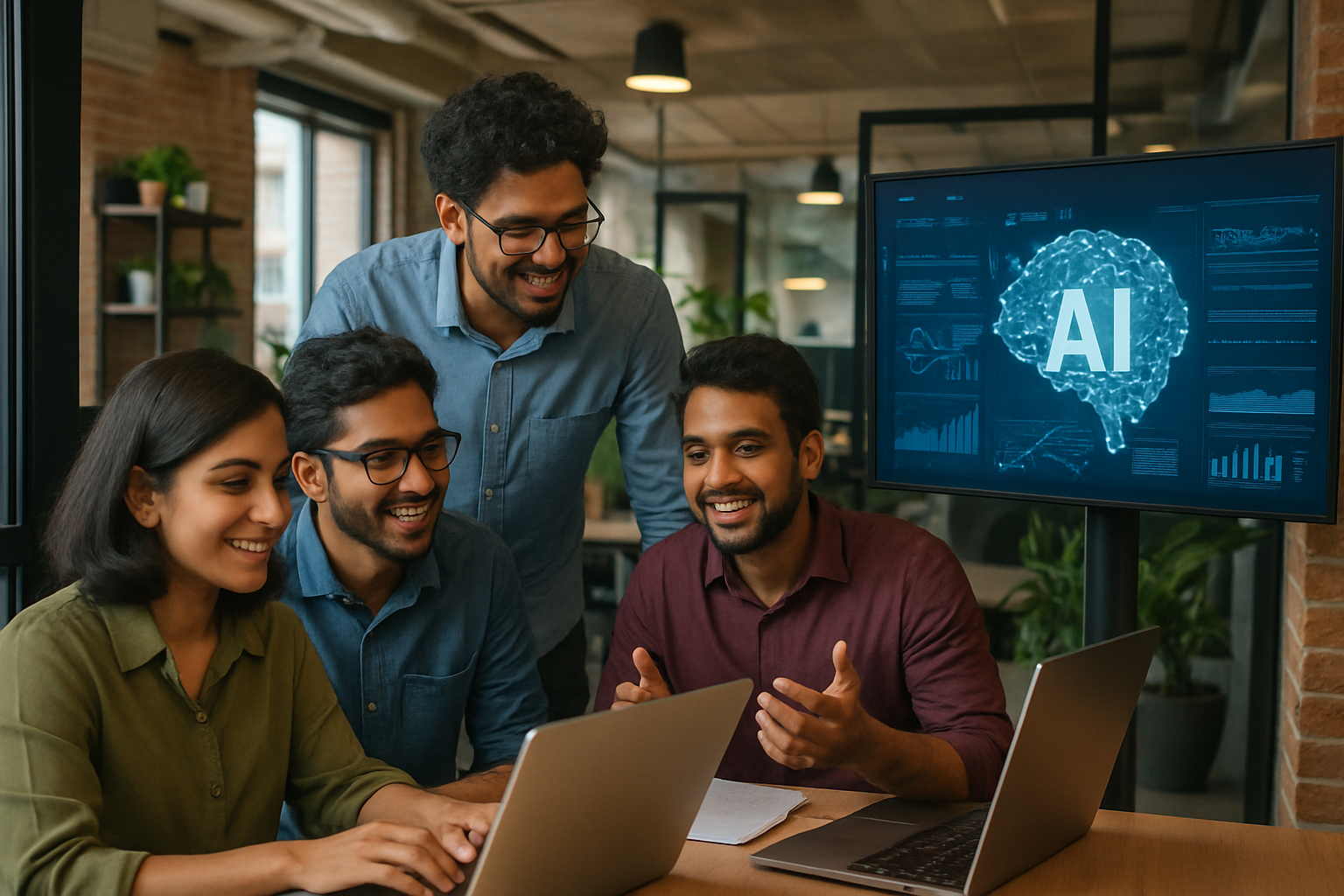Quick Take
- India becomes OpenAI’s second-largest market globally and fastest-growing after the US
- GPT-5 now supports over 12 Indian languages for local business integration
- OpenAI Academy India launches as company’s first international education platform
- AI skills in India surged 190% between 2015-2017, ranking top five globally
- Company exploring local data center partnerships with Indian government
OpenAI executives reveal India has become the company’s second-largest market globally as the AI giant expands operations to make artificial intelligence tools more affordable for small businesses across the country. According to OpenAI, this marks a strategic expansion tailored to the unique needs of the Indian market.
Strategic Market Positioning
CEO Sam Altman disclosed that India represents OpenAI’s fastest-growing market after the United States during a recent media briefing. The expansion coincides with the launch of GPT-5, the company’s most advanced AI model featuring improved reasoning capabilities and enhanced support for Indian languages.
“India represents an extraordinary opportunity for AI innovation and application,” Altman stated, emphasizing that local language support will be crucial for widespread adoption among small businesses and startups.
Growing AI Adoption Landscape
The timing reflects India’s accelerating AI adoption. LinkedIn data shows India ranks among the top five nations for AI skills penetration globally, with the country witnessing a 190% increase in AI expertise between 2015 and 2017 according to industry analysts.
Nick Turley, head of ChatGPT at OpenAI, confirmed that GPT-5 significantly improves multilingual understanding across over 12 Indian languages. “That’s exciting, because India is a priority market for us,” he noted during the briefing.
Addressing Job Market Concerns
The initiative addresses growing concerns about AI replacing human jobs in India’s IT sector. Altman dismissed worries about software engineer job losses, stating there is “no evidence” of such displacement.
“The world wants way more software,” Altman explained. “We have badly underestimated the amount of additional software that the world demands.” While several Indian IT companies have announced workforce reductions while increasing AI-generated code usage, Altman argued that AI enhances productivity rather than eliminating skilled roles. Research from the Brookings Institution presents a nuanced picture, suggesting AI may reshape high-skill jobs by automating routine tasks rather than eliminating them entirely.
Educational and Infrastructure Partnerships
OpenAI is collaborating with India’s India AI Mission to expand AI education access through the newly launched OpenAI Academy India, the company’s first international education platform. This initiative aims to train students, developers, educators, and business owners.
Jason Kwon, Chief Strategy Officer at OpenAI, highlighted India’s dynamic development landscape. “India is one of the most dynamic countries in the world for AI development, with adoption and innovation accelerating at a remarkable speed,” he said.
The company is exploring infrastructure partnerships with the Indian government, including discussions about building local data center capacity as part of OpenAI’s global ‘OpenAI for Countries’ initiative.
Regulatory Compliance and Future Plans
OpenAI commits to full compliance with India’s emerging AI regulations. Altman acknowledged that different countries are taking unique approaches to AI governance, emphasizing that regulatory cooperation will be essential for safe AI deployment.
Altman is scheduled to revisit India in September to advance partnership discussions and strengthen relationships with government and industry stakeholders while assessing the impact of localized initiatives.
Business Impact and Opportunities
For Indian businesses, this expansion could mean more affordable AI tools and better local language support. The initiative may particularly benefit startups and small businesses looking to integrate AI without significant upfront costs.
The move signals OpenAI’s recognition of India’s growing importance in the global AI economy. As digital adoption continues increasing across the country, businesses may find new opportunities to leverage AI for competitive advantage.
OpenAI’s focus on affordability and accessibility aligns with the company’s mission to democratize AI access, potentially transforming how Indian small businesses operate and compete in an increasingly digital marketplace.






